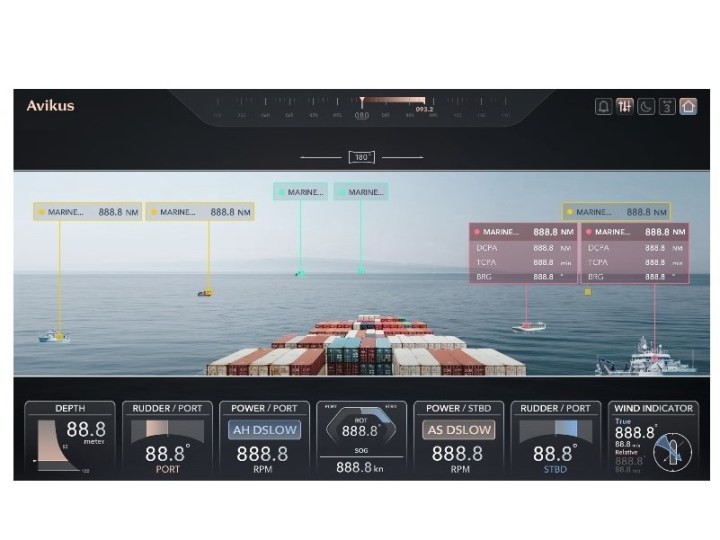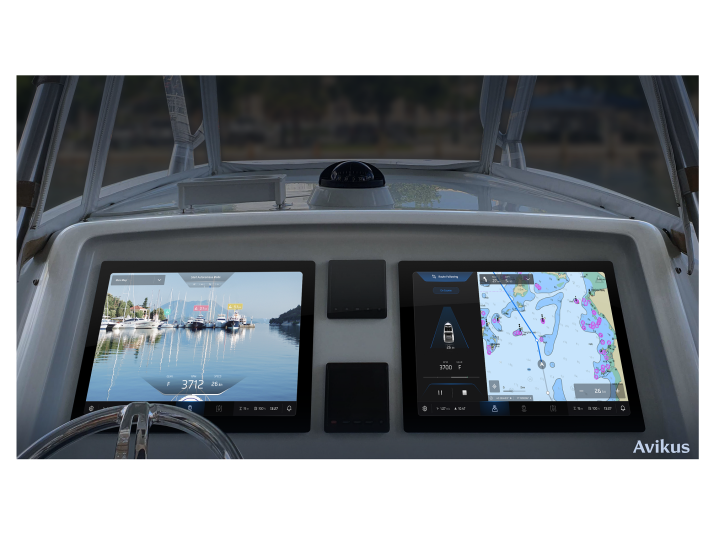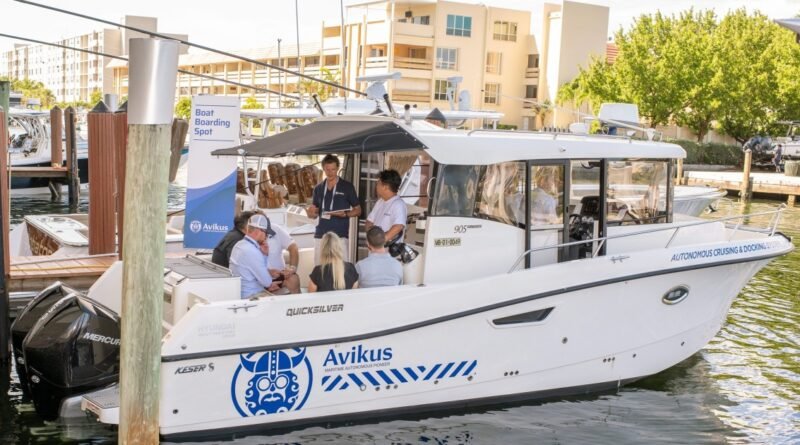CES 2023: Hyundai Avikus A.I. for autonomous boat navigation
[ad_1]
This content was produced in partnership with HD Hyundai.
Autonomous vehicle navigation technology is certainly nothing new and has been in the works for the better part of a decade at this point. But one of the most common forms we see and hear about is the type used to control steering in road-based vehicles. That’s not the only place where technology can make a huge difference. Autonomous driving systems can offer incredible benefits to boats and marine vehicles, too, which is precisely why HD Hyundai has unveiled its Avikus AI technology — for marine and watercraft vehicles.
More recently, HD Hyundai participated in the Fort Lauderdale International Boat Show, to demo its NeuBoat level 2 autonomous navigation system for recreational boats. The name mashes together the words “neuron” and “boat” and is quite fitting since the Avikus’ A.I. navigation tech is a core component of the solution, it will handle self-recognition, real-time decisions, and controls when on the water. Of course, there are a lot of things happening behind the scenes with HD Hyundai’s autonomous navigation solution, which we’ll dive into below — HD Hyundai will also be introducing more about the tech at CES 2023.
Avikus has recreational and commercial viability, and here’s why that matters
One of the most important aspects of HD Hyundai’s Avikus navigation solution is that it offers a great deal of support at sea, and in numerous ways beyond. For example, while the recent showing introduced recreational boating usage of the technology, it’s also being incorporated commercially — via a solution called HiNAS 2.0 (Hyundai intelligent Navigation Assistant System) to be installed in 23 large vessels, including container ships. Last year, Avikus’ HiNAS 2.0 solution supported the world’s first trans-oceanic voyage of a large vessel using autonomous navigation technologies, when the SK Shipping Ultra-large liquefied natural gas carrier Prism Courage completed a month-long voyage. Avikus explained that by allowing the system to select the optimal route, the ship was able to increase its fuel efficiency by 7% while reducing greenhouse gas emissions by about 5%.

The deep learning solution will improve over time, as A.I. and machine learning platforms generally do, but here it’s going to help vessels cope with unexpected events, essentially improving transportation and supply chain operations. The A.I. solutions will be able to control vessel speeds, avoid collisions, identify optimal routes and take them, and help minimize fuel consumption, additionally adding sustainability improvements.
But that same technology, installed in recreational boating vehicles, will offer near identical benefits, of course, tailored more for the average boat owner. Avikus signed a collaboration agreement with Raymarine, one of the most renowned maritime electronics providers, to jointly research and develop an autonomous navigation solution built into multi-function displays. Those displays will presumably be installed in recreational vehicles — helping to improve navigation, trip times, fuel consumption, and much more.
One tool, called the Docking Assistant System (DAS), will even provide boaters with intuitive docking support, removing a lot of the guesswork of visiting new places, parking your boat properly, and dealing with the surrounding logistics — like currents, water depth, and nearby objects. These solutions will help on all fronts, offering green and more sustainable opportunities, but also incredibly convenient and innovative controls for the average boater. All will benefit here, which is why it’s such an impressive achievement, and it’s exciting to hear about.
HD Hyundai NeuBoat, innovation for the leisurely captain

HD Hyundai is delivering the “world’s first” autonomous leisure boat solution, NeuBoat. Imagine dock-to-dock route planning and autonomous navigation, with an option to completely park the boat, even in a standard marina, remotely — from a mobile device. Automated undocking is available, too.
Route planning, berthing planning, it’s all here, but they’re fully backed by intelligent sensors, including vision sensing technologies, all connected to a deep-learning object detection and tracking platform. In other words, the A.I. learns as you go and becomes better and smarter, not that it isn’t intelligent already. You can also monitor and control the connected boat from a web browser. So, you can kick back, relax, have a drink or some snacks, and let the system drive the boat for you. As you might expect, real-time collision avoidance ensures that the boat won’t run into anything or run aground during your trip.
NeuBoat Navigation, which Avikus plans to release in the second half of 2023, will help human operators – who are directly controlling their vessels – make better, more situationally-aware decisions. The basic option delivers navigational assistance through augmented reality to help operators make smart choices, while the more advanced option provides navigation assistance.
NeuBoat Navigation and Docking Control, which Avikus plans to release in 2024, is the next step up. Its basic option will deliver AI-controlled route planning, navigation, and collision avoidance, but with humans providing oversight. Its advanced option provides these same navigation capabilities, but also delivers AI-controlled docking.
At CES this year, HD Hyundai is sharing more about these technologies, and future plans. Of course, if you want to know more, you can continue reading at HD Hyundai’s site.
Editors’ Recommendations
[ad_2]
Source link




